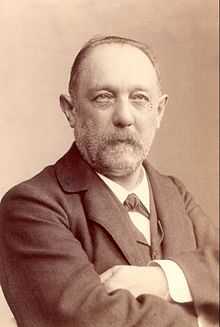Emanuel Mendel
- For the prominent curbstone broker, see Emanuel S. Mendels

Emanuel Mendel (October 28, 1839 – June 23, 1907) was a German neurologist and psychiatrist who was a university professor and director of a polyclinic in Berlin. He was born in Bunzlau, Lower Silesia; (today known as Bolesławiec, Poland).
He studied medicine in Berlin and in 1873 received his habilitation. Mendel was an advocate in regards to the unification of psychiatry and neurology as complementary disciplines. Among his better-known students and assistants were Max Bielschowsky (1869–1940), Edward Flatau (1869–1932), Lazar Minor (1855–1942) and Louis Jacobsohn-Lask (1863–1940)
Mendel is remembered for the introduction of duboisine, an extract from the Australian plant Dubosia myoporoides, as a treatment for Parkinson's disease. Also, he conducted important studies of epilepsy and progressive paralysis.
Among his medical writings was a textbook on psychiatry titled Leitfaden der Psychiatrie für Studirende der Medizin (1902), later translated into English and published as "Text-book of psychiatry : A psychological study of insanity for practitioners and students".[1][2] Also, he was founder and publisher of the neurological/psychiatric magazine Neurologisches Centralblatt.
Mendel was interested in politics, and was a member of the Reichstag from 1877 to 1881.
References
- Parts of this article are based on translations of articles from the German and Polish Wikipedia.
- Duboisia myoporoides: the medical career of a native Australian plant
- ↑ IDREF.fr
- ↑ Open Library Text-book of psychiatry
- E Mendel (1907). Text-book of psychiatry. Davis.
|